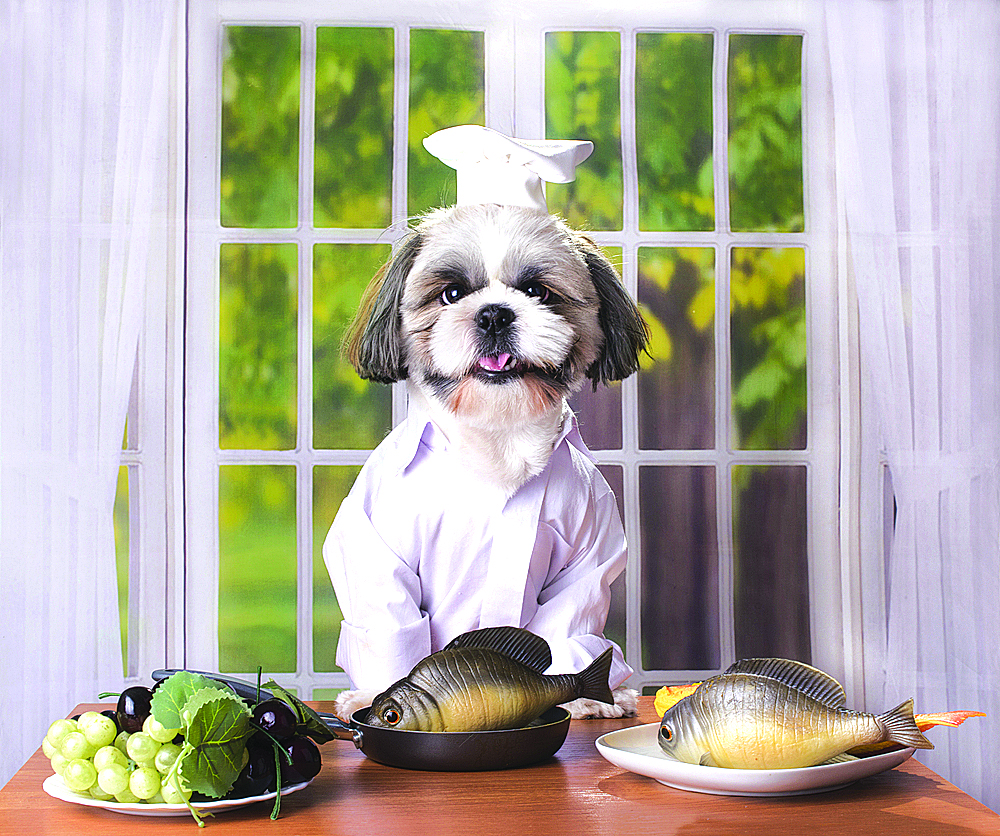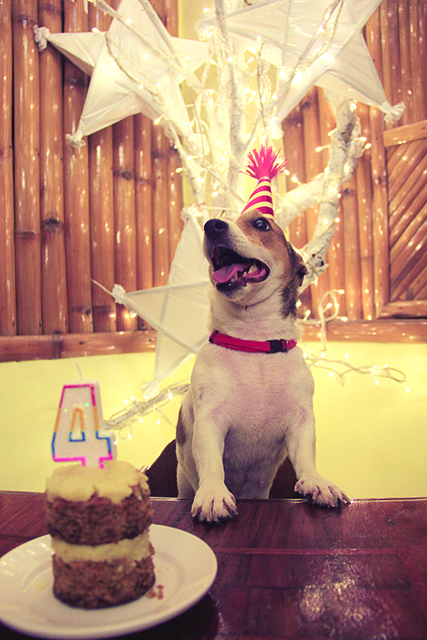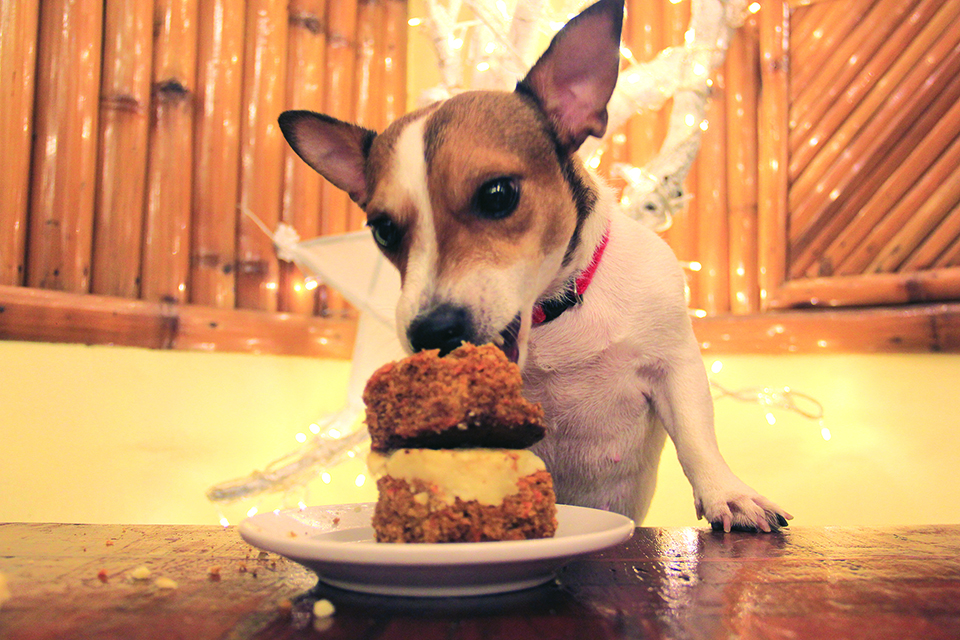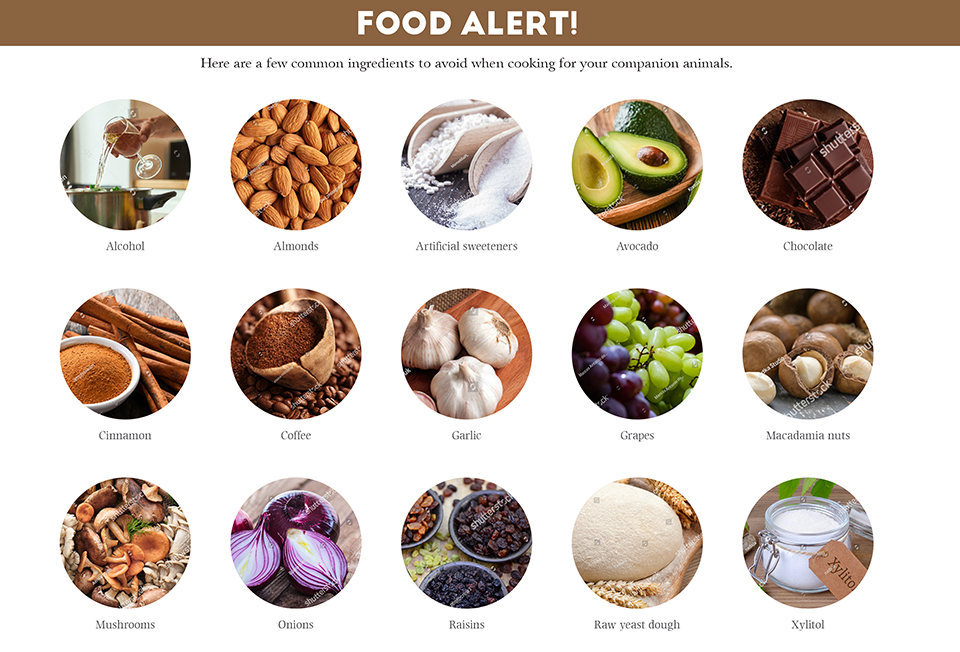

DEALING WITH PICKY EATERS
I am sure that I’m not the only one who notices that as a dog ages, they become choosier with their food – and who could blame them? Eating the same food everyday will surely bore them. Adding home-cooked food to their bowls can whip up their appetite, making their meals more enjoyable and exciting. More so, this gives the dog more variety in when it comes to nutrition! Preparing the food for your canine companions can create a better bond between you and your animal companion! And if your fur-baby is celebrating their birthday, prepping food for them can also make their birthday celebrations as personalized as you want it. I personally didn’t think that baking a cake my fur-babies would love would only need ingredients that are readily available in my kitchen any time of the day!

HOW TO MAKE A DOG-FRIENDLY
BIRTHDAY CAKE
I’ve been using this recipe for quite a while now. What I love about this recipe is that the ingredients are extremely easy to get. I’ve personally tried and tested this recipe and it did not cause any gastric upset to my dogs. However, there is no nutritional analysis on this, so I only make this as a treat. The best part is that they love it!
Ingredients:
1 ½ cup shredded carrots
1/3 cup peanut butter
1 large egg
1 cup whole wheat flour
1 tsp baking soda
Cooking spray
Instructions:
Preheat the oven to 175°C. In a bowl, combine shredded carrots, peanut butter, and egg together. Mix well and set aside.
Combine the dry ingredients together: flour and baking soda. Fold half of the dry ingredients into the carrot batter and mix thoroughly. Add the remaining dry ingredients and mix until well combined.
Grease your cupcake mold with cooking spray and pour the batter until the ¾ of the mold is full. Bake for 30 minutes. You may also use different baking molds.
Depending on the thickness of the mold and batter, your baking time may vary. You can do the toothpick test to know if the cake is baked through.
I personally prefer using mashed potato as frosting. In preparing, I just switched the milk or heavy cream ingredient to milk powder for pets.

FULL DISCLOSURE
Personally, preparing food for your canine companion gives you full control of and knowledge about what goes into their diets. Your veterinarian may also advise you to have your canine companions in a special diet should their medical conditions require it. Some can be prepared within the comfort of your own kitchens! However, some ingredients, such as eggs, milk, soy, and corn products, may cause digestive upset and food allergies. These unwanted reactions towards food differ from one dog to another. Undercooked food may also put your canine companions to some risk of pathogenic organisms. Additionally, one may have the tendency to overlook small bones that the dog might ingest, causing serious gastrointestinal problems or injuries. Preparing meals for your fur-babies takes more time, higher costs, and variable quality control. Prepare for diet inconsistencies, difficulty in formulating, and preparing a nutritionally complete and balanced diet.

SHOULD YOU GET RECIPES ONLINEWITHOUT ADVICE FROM A VET?
2017 study published in the Journal of Nutritional Science, which studied dog diets obtained from the internet, from books in bookstores and university libraries, as well as from published veterinary articles, showed that all diets had at least one nutrient falling below recommended levels, and all investigated nutrients were deficient in at least one diet in 80 home-prepared diets.Pay attention to the nutritional value of the food you’re preparing for your animal companions. Make sure you’re not giving your dogs unbalanced diets, as most recipes do not have balancing nutrients in mind.There is no one-size-fits-all for home cooking. Every dog has different nutritional needs based on life stage, lifestyle or activity, disease, or body condition. It is also important to realize that no home-cooked diets have undergone the testing and research used to formulate complete and balanced commercial pet food.Should you be interested to start cooking for your dogs, always check the ingredients well, and it is always best to consult with your veterinarian before proceeding with the dietary change. Monitor your babies for allergic reactions or digestive upset. Make sure they don’t lose or gain too much weight on their new diet.






